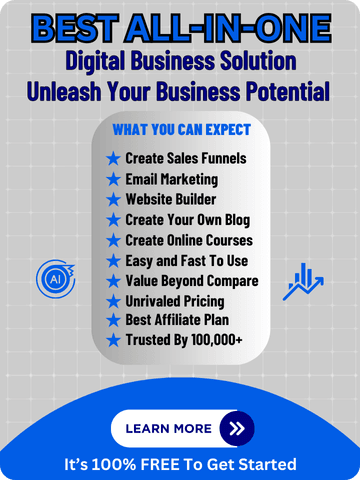Explore the transformative power of AI-driven medical diagnosis in modern healthcare. Dive into its benefits, challenges, and the future implications for medical professionals and patients alike.
Introduction: Embracing the Revolution of AI-Driven Medical Diagnosis
In a world where the pace of technological advancement is nothing short of breathtaking, there’s one frontier that stands head and shoulders above the rest: AI-driven medical diagnosis. For many, it’s the sweet spot where cutting-edge tech tools meet humanity’s most noble endeavor – healing.
Take a moment and rewind. Traditional medical diagnosis, while rooted in years of study and expertise, had its limitations. Speed, subjectivity, and even the sheer exhaustion of medical professionals could impact diagnosis accuracy. But, like a hurricane tearing through, AI is upending the status quo.
Now, imagine a world where diseases are not just diagnosed with meticulous accuracy, but done so at a speed previously deemed impossible. Where rare conditions don’t go unnoticed because a machine, fed with vast amounts of data, picks up on nuances the human eye might miss. That’s the seismic shift AI-driven medical diagnosis is bringing about.
But this isn’t some futuristic vision; it’s today’s reality. And as we plunge deeper into this blog, we’ll unravel the magic behind this revolution, its triumphs, the hurdles it faces, and the unimaginable promise it holds. Buckle up; it’s going to be a thrilling ride!
The Dawn of AI in Medicine
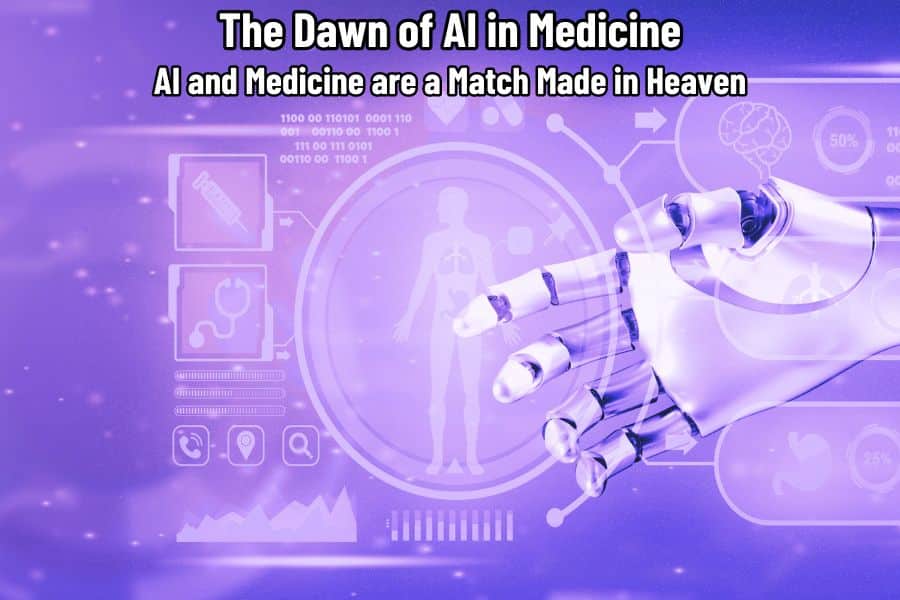
If there’s one thing that every entrepreneur, techie, or innovator gets excited about, it’s seeing a disruptive force like AI tech solutions meet an age-old industry. And what’s older and more established than medicine? Let’s dive in and see how this blend is not just changing but electrifying the medical landscape.
A Brief History of Artificial Intelligence in Healthcare
Long before AI-driven medical diagnosis became the buzzword it is today, the foundations of artificial intelligence in healthcare were being laid. Think back to the 1960s. While the world was grooving to the Beatles, the medical fraternity had Dendral – one of the first AI applications designed to mimic organic chemical problem-solving. Fast forward to the 21st century, we saw IBM’s Watson dazzle the world, not with chess this time, but with oncology, helping doctors diagnose rare forms of cancer.
While Dendral and Watson might seem worlds apart, they’re waypoints on AI’s remarkable journey in healthcare. Each decade brought forth innovations that made AI-driven medical diagnosis not just a possibility, but an emerging reality.
Why AI and Medicine are a Match Made in Heaven
At the heart of medicine lies data: symptoms, test results, patient histories. The sheer volume is staggering. But here’s the thing: AI thrives on data. The more you feed it, the better it gets. When you harness this AI data for healthcare, better and faster diagnoses are almost guranteed.
AI offers unparalleled precision, speed, and consistency. It doesn’t tire after a 12-hour shift or miss details after reading the 50th medical scan. While a human doctor’s expertise is invaluable, combining it with AI’s efficiency is like putting your medical diagnosis on steroids. It’s not about replacing our trusted MDs, but empowering them with tools that elevate their practice.
Dawn of a New Era
The convergence of AI and medicine is more than just another technological trend. It’s the dawn of a new era. An era where AI-driven medical diagnosis will make health more predictive, diagnosis more precise, and care more personalized. And as this fusion between AI and healthcare continues to evolve, one thing is clear: the future of medicine isn’t just bright; it’s brilliant! So, as we pull back the curtain on the AI medical revolution, prepare to be both informed and amazed. Yes, the journey has only just begun.
How AI Transforms Medical Diagnosis

The future isn’t coming; it’s already here! When we think of how technology impacts our lives daily, it’s impossible to ignore the giant strides we’ve made in healthcare, thanks to Artificial Intelligence. The star player of this evolution? You guessed it: AI-driven medical diagnosis. This isn’t about the sci-fi movies you’ve watched; this is reality. And I’m going to break down just how transformative it’s been.
Enhanced Accuracy and Precision
Imagine being able to shoot a basketball from any point on the court and hitting the net every single time. Fantasy, right? That’s how AI has elevated the game for medical professionals. Instead of just going by textbook knowledge and past experiences, doctors now have a new powerful ally. AI scans millions of data points, identifying even the most minute deviations. The result? Diagnosis that’s sharper than a tack. With AI-driven medical diagnosis, it’s not about replacing the human touch but about refining it, ensuring that patients don’t just get care, but they get the right care.
Speedy Results: No More Waiting Games
Remember the anxious pacing, the endless clock-watching, and the mind’s relentless what-ifs while waiting for medical results? With AI, those days are numbered. We’re in an age where data analysis that traditionally took days or even weeks can now be completed in mere minutes or hours. It’s all about efficiency and speed without compromising on quality. It’s life-changing. It means quicker treatments, shorter hospital stays, and lesser anxiety for patients.
Addressing Rare Conditions with Data-backed Insights
Now, here’s where AI truly shines – the mysteries that often stump even the best in the medical field. Rare conditions, with their limited data, often lurk in the shadows, posing significant challenges in diagnosis. But AI? It’s like the Sherlock Holmes of healthcare. By consolidating global data and identifying patterns, AI-driven medical diagnosis shines a light on these rare conditions, giving hope and clarity to those who once felt lost in the system.
Redefining How We View Healthcare
This isn’t just a wave; it’s a tidal wave of change. AI-driven medical diagnosis is redefining how we view healthcare, making it more accurate, faster, and more inclusive. And trust me, with AI in healthcare, we’re surfing right at the crest of potential. So buckle up…because this ride is only getting started.
Dive deeper with me into the world of AI and its myriad possibilities. Let’s see how AI is revolutionizing healthcare.
Real-Life Examples of AI in Action
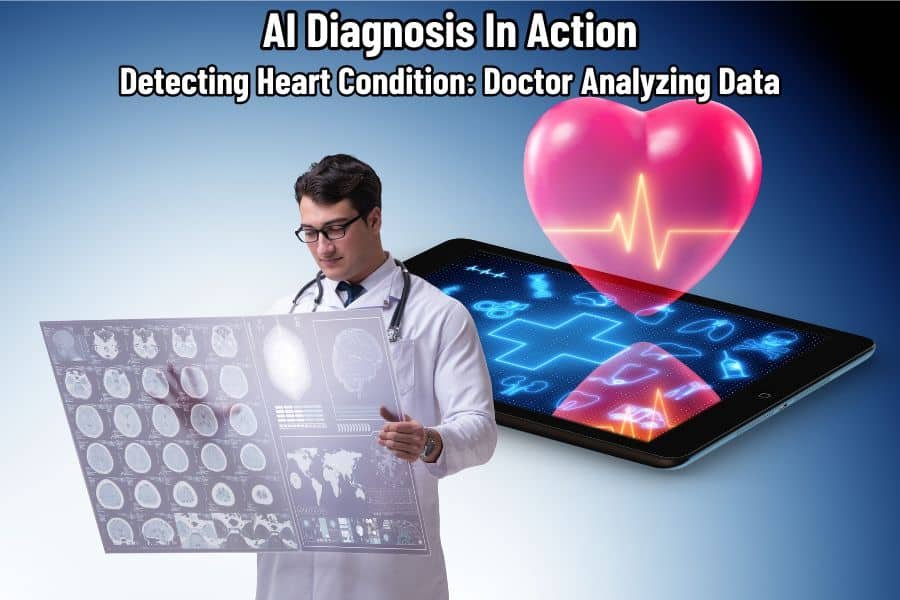
We’re not just talking theories and future predictions here. AI-driven medical diagnosis is already leaving footprints in the sands of healthcare. Want some proof? Well, let’s hop on a brief tour through some real-life applications of AI that are changing the game as we speak.
Predicting Heart Diseases Before They Strike
Your heart is complicated, no newsflash there! But what if we could preemptively tackle heart diseases before they even show signs? AI, with its data-analyzing prowess, can sift through ECG results, lifestyle data, and more to predict potential heart issues. It’s like having a crystal ball, but instead of vague predictions, you get scientifically-backed insights!
Detecting Skin Cancers: Beyond the Human Eye
Did you know that skin cancer, if caught early, has a high chance of being cured? AI is playing a major role here. Using intricate algorithms that analyze thousands of skin lesion images, AI can detect melanomas and other skin conditions that might even elude the experienced eye of a dermatologist. By catching these potential threats early, AI is not just diagnosing; it’s saving lives.
AI’s Role in Pandemic Predictions and Response
Recent times have shown us the devastating impact of pandemics. But imagine a world where AI could help us predict and prepare for them. Using vast amounts of global health data, migration patterns, and even social media trends, AI systems are getting better at forecasting outbreaks and assisting in rapid response. This isn’t just about handling a health crisis; it’s about averting it.
The Future is Now: AI’s Tangible Healthcare Footprint
It’s clear, isn’t it? AI-driven medical diagnosis isn’t just a topic for academic debates or tech conferences. It’s here, in our clinics, our hospitals, and our research centers. From detecting skin cancers to being a guardian against potential pandemics, AI is not just supporting the healthcare system; it’s revolutionizing it. And if these examples have lit a spark of curiosity in you, just wait till you see what’s next. The AI journey in healthcare is just getting started, and you won’t want to miss a moment of it. So, keep reading, stay informed, and witness a revolution unfold.
Challenges Faced by AI-Driven Diagnosis
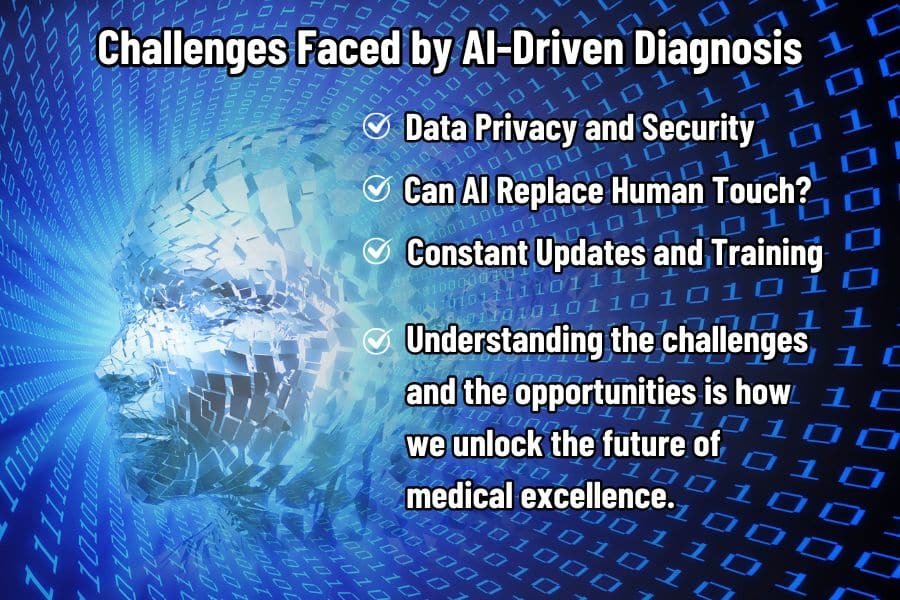
Look, the power of AI-driven medical diagnosis is undeniable. It’s reshaping the way we look at healthcare, introducing efficiencies that were once deemed impossible. But let’s level with each other: every shiny new toy has its own set of challenges. Let’s pull back the curtain and address the elephants in the room.
Data Privacy and Security Concerns
In this digital age, data is king. And when it comes to AI-driven medical diagnosis, the crown jewels are our medical records. But with great power comes great responsibility. We’re diving deep into the oceans of personal medical data, and the threats of leaks and breaches loom large. How do we harness this power, all while ensuring the sanctity and security of personal information? It’s a tightrope walk, one that demands immediate attention.
The Human Touch: Can AI Replace It?
Let’s face it: AI is a marvel, but it lacks a heartbeat. The world of medicine isn’t solely based on symptoms and diagnoses. It thrives on human interactions, empathetic conversations, and the age-old practice of bedside manner. While AI-driven medical diagnosis can pinpoint a condition with astonishing accuracy, can it replicate the warmth of a reassuring nod or the solace in a doctor’s voice? The real challenge is ensuring AI augments human interaction, not diminish it.
The Need for Constant Updates and Training
AI is like a curious child, constantly learning and evolving. But unlike a child’s organic growth, AI requires consistent, deliberate feeding of information. Medical paradigms shift, new research emerges, and AI needs to be right there, updated, and ready. How do we keep these systems always at the pinnacle of current knowledge? It’s a relentless pursuit and one that we cannot afford to slack on.
Navigating the AI Healthcare Frontier
The roadmap of AI in healthcare is an exhilarating ride with its fair share of bumps and turns. While the challenges are tangible, they’re not insurmountable. They’re just checkpoints, ensuring we’re on the right track, refining and perfecting the blend of technology and healthcare. As we delve deeper into this promising territory, remember: understanding the nuances, the challenges, and the opportunities is how we unlock the future of medical excellence.
Stay with me as we chart the intricacies of AI’s impact on healthcare. Because to truly harness its potential, we must grasp the full spectrum – both the brilliance and the challenges.
Preparing for an AI-Infused Medical Future

Alright, let’s cut to the chase. The winds of change are howling, and they’re ushered in by the rapid evolution of AI-driven medical diagnosis. For healthcare professionals, clinics, and essentially everyone involved in the realm of medicine, it’s a wake-up call. Preparation is more than just a luxury; it’s an absolute necessity.
Essential Skills for Healthcare Professionals
No, AI isn’t about to replace your trusted doctor. But healthcare pros need to upskill and adapt to this tech-infused era. Diagnostic algorithms can churn out results, but interpreting them requires a keen human intellect. It’s not just about the tech. Understanding the underlying algorithms, being adept at data interpretation, and maintaining the ability to juxtapose AI-driven insights with real-world clinical scenarios are paramount. And hey, continuous learning? That’s the new norm.
The Ethical Considerations: Navigating Uncharted Waters
When we talk AI in medicine, it’s not just the tech that makes waves. There’s an ethical whirlpool too. How do we balance AI-driven medical diagnosis with the rights and consent of patients? Where’s the line between dependence on AI for quicker diagnosis and risking human oversight? It’s crucial to remember that every byte of data represents a human life. Navigating these ethical waters requires clarity, forethought, and an unwavering moral compass.
Investing in AI: A Must for Modern Clinics
For clinics and healthcare setups, this isn’t the future—it’s the present. Refraining from investing in AI technologies is like leaving money—and accuracy—on the table. Modern clinics need AI tools, not just to stay competitive but to offer the most accurate and efficient patient care possible. Moreover, as patients become more tech-savvy, they’ll expect (and trust) clinics that leverage AI-driven medical diagnosis tools. If you’re in this field, investing isn’t a question of “if” but “when” and “how much”.
Sailing Smoothly in the AI Healthcare Voyage
We’re on the precipice of a new era, a seismic shift in how healthcare functions. AI-driven medical diagnosis, with its immense promise, is also fraught with challenges. As we embrace it, let’s remember to upskill, uphold the highest ethical standards, and ensure our clinics are future-ready. The voyage of AI in healthcare is exhilarating. Let’s ensure we’re steering the ship, not just along for the ride.
Conclusion: The Indisputable Rise of AI-Driven Medical Diagnosis
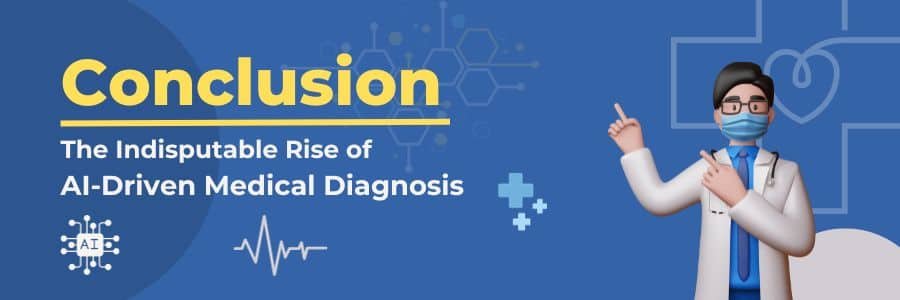
Alright, dear reader, here we stand, at the precipice of a monumental shift in healthcare – one steered by the winds of AI-driven medical diagnosis. It’s been a journey, hasn’t it? Let’s recap a bit, and find out why this matters – to you, to me, to everyone.
Firstly, remember our exploration into how AI is transforming medical diagnosis? Enhanced precision, speed, and its knack for diving deep into rare conditions using vast troves of data? These aren’t just flashy benefits. They’re real-world game changers. And they’re not coming; they’re already here.
Now, why should you care? Why does John from down the lane or Dr. Eleanor from the city hospital give a darn? Simple. Whether you’re waiting for a diagnosis, looking to get one faster, or wanting to ensure nothing gets missed in the process, AI’s got your back. For medical professionals, this isn’t about replacing you; it’s about arming you with sharper tools in your arsenal.
Let’s not overlook the challenges and preparation needed either. AI’s rise demands new skills, ongoing training, and ethical considerations. It’s about preparing for a future where machines and humans work in tandem. This isn’t a sci-fi movie plot. This is reality, and it’s unfolding right now.
So, where do we go from here? Embrace the AI revolution. Whether you’re a patient, a health professional, or just an intrigued soul, lean in. Dive deeper and challenge the status quo. Because a healthier tomorrow, powered by AI-driven medical diagnosis, awaits those who dare to innovate, integrate, and instigate change. Get informed and get onboard!
Next, let’s answer some frequentlty asked questions
Frequently Asked Questions

Navigating the labyrinth of AI-driven medical diagnosis? You’re not alone. Here are some burning questions and yes, answers too.
How accurate are AI-driven medical diagnoses?
Alright, here’s the deal. When trained on ample, quality data, AI-driven medical diagnosis systems can be uncannily accurate, often matching or even surpassing human professionals in specific tasks. However, their accuracy can hinge on the quality and quantity of data they’re trained on. So, while many AI models have showcased precision in diagnosis, generalizing their accuracy across all fields and conditions would be an oversimplification.
Are there risks of data breaches with AI in healthcare?
Spot on with this question! Any system connected to the internet or other networks, AI-driven or not, is potentially susceptible to data breaches. However, most AI healthcare platforms prioritize top-tier encryption and security measures. It’s essential to select systems known for robust security features and stay updated with the latest cybersecurity practices.
Can AI replace healthcare professionals entirely?
In a word: No. Think of AI as a tool, an incredibly sharp one, but a tool nonetheless. AI-driven medical diagnosis systems excel at analyzing vast amounts of data quickly, providing insights, and even spotting patterns humans might miss. But healthcare is as much an art as it is a science. The empathy, judgement, and intuitive understanding that healthcare professionals bring to the table? That’s irreplaceable.
How is patient privacy maintained in AI-driven systems?
Patient privacy is paramount. Most AI-driven healthcare systems utilize techniques like data anonymization and encryption to ensure that individual identities aren’t linked to data. Additionally, rigorous regulations in many countries mandate stringent patient data protection measures. It’s always good to inquire and ensure that the AI tools used adhere to these standards.
What is the cost implication of integrating AI in clinics?
Okay, brass tacks time. Integrating AI tools in clinics can have upfront costs. We’re talking about software, possibly hardware, training, and maintenance. But here’s the kicker: the long-term ROI can be substantial. Enhanced diagnostic accuracy, improved patient flow, reduced human errors, and faster results can translate to both monetary savings and enhanced patient care.
Are there certain medical fields where AI has greater application?
Absolutely. AI shines particularly bright in fields like radiology, where it can quickly analyze images for signs of diseases like cancer. Pathology, genetics, and research fields also benefit immensely from AI’s data-crunching capabilities. But as AI-driven medical diagnosis tools evolve, their utility is expanding across various medical spheres. The horizon? It’s vast and promising.
Stay informed, stay curious, and remember: the fusion of AI and healthcare is a journey. It’s best traveled with ample knowledge and an open mind.
Resources: Dive Deeper into AI-Driven Medical Diagnosis

Venturing further into the realm of AI-driven medical diagnosis? Equip yourself. Here are some cherry-picked resources, spanning various mediums, that will give you that edge, help you understand the nuances, and make you the person to go to during dinner table debates on this topic. Ready? Let’s kick things up a notch.
Articles
If you’re a rapid-consumer of information, articles are your ticket. I recommend starting with peer-reviewed journals for a deep dive and trusted news platforms for a broader overview:
- “AI in Healthcare: Promises and Perils” – A detailed exposition on both the potential and challenges AI brings to the healthcare space.
- “The Digital Doctor: AI’s Role in Modern Diagnosis” – Understand how AI is not just supporting but sometimes outperforming human physicians in specific diagnostic tasks.
Books
For those ready to commit to a weekend (or several) of insight:
- “Deep Medicine: How Artificial Intelligence Can Make Healthcare Human Again” by Eric Topol. Dr. Topol paints a holistic picture of the AI and healthcare marriage, addressing both the tech and the touch.
- “The Future of Healthcare: Humans and Machines Partnering for Better Outcomes” – This tome provides not just a look into AI’s role, but a broader perspective on tech’s intertwining with health.
Case Studies
Want real-world examples? Case studies provide a tangible look at the application and outcomes of AI-driven medical diagnosis in action:
- “Revolutionizing Radiology: AI’s Role in Faster, More Accurate Imaging” – A deep dive into how AI is making waves in the world of medical imaging.
- “AI in Dermatology: Spotting Skin Cancer Early” – Understand how AI tools have achieved remarkable accuracy in early skin cancer detection.
Podcasts
On-the-go insights for the auditory learners:
- “The AI Doc: Bridging Tech and Healthcare” – A weekly podcast shedding light on the latest developments in AI-driven medical diagnosis, featuring interviews with top industry experts.
- “TechMed: Navigating the Future of Medicine” – Tune in for episodes that break down complex topics, making them digestible and engaging for anyone, techie or not.
Tools
For the hands-on enthusiasts:
- “MediTech AI Suite” – A state-of-the-art tool that helps clinics and hospitals integrate AI capabilities into their existing systems.
- “DermoDetect” – An AI-driven tool designed for dermatologists, aiding in the swift detection of skin anomalies.
Attention Digital Entrepreneurs
Get 100% FREE Al Digital Marketing Platform: [CLICK HERE TO LEARN MORE]


